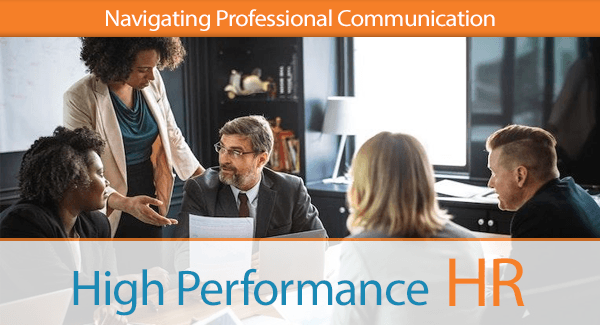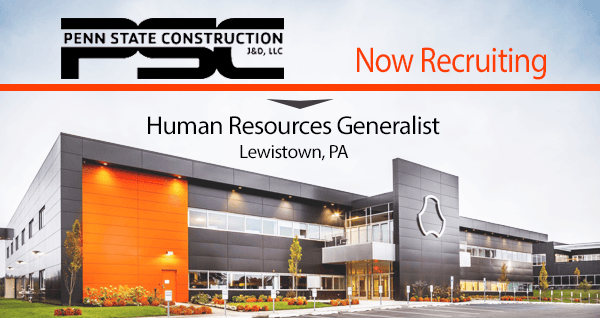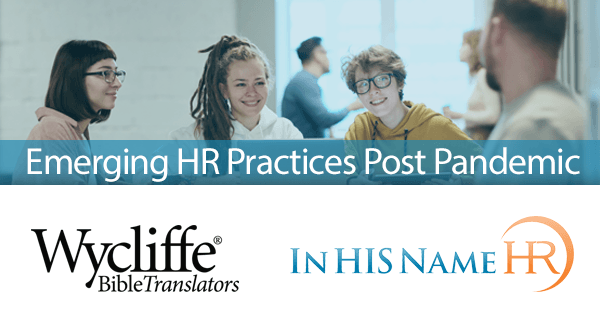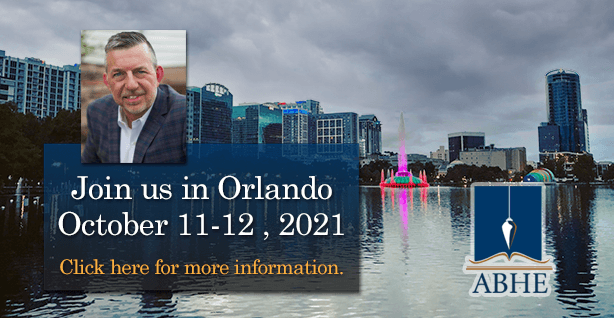
Oct 27, 2021
It would be the understatement of the century to say that the Covid-19 pandemic has disrupted the flow of information in the workplace. It hasn’t simply disrupted communication in the workplace; it has rewritten the landscape of how managers and employees interact daily and how employees do their work. When it comes to a productive, efficient and effective workplace, nothing can replace robust communication between everyone. It builds trust, sets realistic expectations and gives everyone a sense of orientation, even—and perhaps even most importantly—when times are tough.
That is why it’s more important than ever to not only maintain communication with employees but improve it, as much as possible. HR departments, managers and employees all play a critical role in making sure that the lines of communication stay open and are used often. How do you do that? Consider this.
The pandemic has left people detached, distracted, and hopeless beyond belief. The unpredictable layoffs, dismissals, lack of income security, and compromised productivity have created an atmosphere of uncertainty and fear. One report suggests that about 655 million full-time jobs worldwide were lost in the first two quarters of 2020 alone.
This lingering fear of losing a job or business, or negative changes in monthly income has affected the psychological well-being of employees and employers alike. Adjusting to the new form of work while maintaining one’s sanity and staying safe from the virus is a huge challenge that has negatively affected communication within most organizations.
If you are experiencing some or all of these same difficulties and need some winning tips, we can help. This article brings valuable insight to help employers learn communication development ideas from a Christian perspective as well as effective tips for employees to acquire the support they need from their employers.
Acquiring Support the Right Way
Since the start of the Covid pandemic, employees worldwide have experienced a lack of support from their employers in the area of communication. This has greatly affected employees’ mental framework and productivity.
Many employees and managers alike have chosen to keep communication to a minimum, assuming it would prevent unnecessary conflict. But keeping concerns bottled up inside is an exhausting way to handle a situation. Speaking one’s mind will help relieve stress and also reveal unrealistic assumptions. But concerns must be appropriately voiced for effective results. To avoid a negative impact, follow these 5 strategies:
1. Voice Your Concern in a Timely Way
The first thing for workplace harmony is choosing the perfect time to share a concern. Discussing issues during a meeting or when leadership is interacting with others may be a big no-no at your organization. The most effective way in ensuring non-confrontation is to schedule a time with your leader and have an honest one-on-one discussion with them. Make sure the time is right, as it will set the course for productive conversation, allowing your employer to listen to you attentively and respond. Many leaders are more receptive in an individual setting vs. a group format when an employee goes out of their way to communicate.
2. Avoid Being Vague
If you are intent on finding a solution or you have concerns, be specific to avoid sounding negative or unserious. Instead of generalizing the problem, discuss the details, as generalizing diminishes the seriousness of your case. The more specific and clear you are, the more benefits you will likely achieve.
3. Keep Solutions Ready
The most effective employees are those who see a problem come up, identify a solution, and seek approval to implement. Employees who repeatedly raise problems without suggesting solutions tend to diminish their reputation, so try to be solution oriented. Suggesting a solution along with the problem will make you look like a problem solver and helps leaders be more receptive to considering your point.
On the other hand, those who perpetually complain hurt only themselves. Complaints are not limited to employees; leaders can be negative as well, especially given the pressures and restrictions of Covid-19. So you need to know when best to present something as a problem and when to visit your superior to seek their opinion and advice before you work on something.
4. Let the Employer Decide
You cannot force an idea or a solution upon your organization. Voice your concerns in the form of a request vs. a demand, present some suggestions, and leave the final decision to senior leadership. Even if you do not get your request approved quickly, it will be on the record for future concerns. Most employers want to hear concerns, and presenting them respectfully creates a greater chance of implementation.
5. Ask Others to Voice Their Opinion
If it’s an issue that affects others, encourage them in a respectful way to speak up for maximum results. When more people are affected by a problem, the chance of leadership taking action also increases. Together, all can help leadership understand the totality of workplace obstacles.
Communication Ideas for Employers
To make sure the organization is operating well and heading towards its intended goals, employers need to pay attention to the communication within their organization as it relates to the development, care and support of its employees. This is most important during this difficult Covid-19 pandemic period.
Below are 9 critical takeaways for leaders and human resource management to ensure added productivity and development, even in times of crisis.
1. Communicate Often, More Than You Think Is Necessary
Over-communication is rarely the problem in any organization. That is why is it important to communicate frequently. According to the Harvard Business Review, those who work remotely don’t feel like they are being treated equally. This is where consistent communication can make a dramatic difference.
Communication is key to success, especially during tough times. Constant reminders, motivation, and communication reduce employees’ concerns and help them stay on top of their tasks. The way communication is maintained with employees can have a dramatic impact on an organization during tough times. So, keep it transparent and regular. Consider developing a communication strategy that allows your HR team to take the lead to communicate key information on a regular basis. Doing so can help reduce the stress your employees may have of the unknown.
2. Have One-on-One Discussions With Your Staff
Having one-on-one discussions with your staff allows you to put your Christian values to work. Being tolerant and treating employees with grace shows that you value their growth and are willing to helping them develop to their full potential, regardless of circumstances in the outside world. Your staff grows, your company grows.
3. Be Empathetic
Empathy goes a long way and can buy you a lot of goodwill. Remember, everyone is working and building their careers, and concerned for their future and stability. People will continue to make mistakes in their work. This is where empathy can show that you care and are worthy of their trust. This leads to more honest and open communication.
4. Watch for Nonverbal Cues
The signs of stress or impending problems are often more easily seen than heard. In the age of video calls, watching for nonverbal clues can give you an edge when anticipating challenges. By being alert to and addressing these clues, not only are you being proactive but you show that you care enough to pay attention. That can go a long way toward bolstering communication between employees, managers and HR.
5. Give Employees Options to Have Their Concerns Addressed
Communication is a two-way street and by making it easy for employees to have their concerns heard and addressed, you are proving with your actions that you care. One-on-one conversations, suggestions boxes, easy access to HR and an open-door policy to managers are ways to show that employees matter. When people believe their voices matter, they speak.
6. Develop Feedback Mechanisms
Create a secure channel to communicate and encourage feedback from employees. To gain organizational feedback, allow employees to utilize several means of communication, such as reaching out to HR, talking to a senior or manager (open-door communication), or providing anonymous suggestion channels. Offering various methods allows the concerns to reach the right authorities and encourages the employees to give feedback, which helps immensely in professional development. For more intense leadership development feedback, consider HR Impact 360, a program where leaders are assessed by their direct reports, peers and superiors.
7. Ease the Work-from-Home (WFH) Experience
As we all know, maintaining productivity is challenging while working from home. Therefore, employers who can arrange for equipment to support working at home will help employees succeed. By now, most organizations have implemented software and tools (Zoom, Slack, etc.) to help employees perform without much hindrance. On the other hand, holding meetings and discussions on time that limit the effect on their family can ease the WFH experience. Opting for audio vs. video calls when few people are needed can also speed up things.
8. Provide Job Security
One of employees’ greatest fears, based on our conversations with them, is the possibility they might lose their jobs and have their careers derailed. Being a leader, it is difficult to navigate this territory. Many states are “employment at will,” which means employers and employees can part company at any time for very little reason. And employers must be careful not to insinuate job security in precarious times. Be cautious about assuring employees that their jobs are secure. And if you know it not to be the case, let them know in advance to give them enough time to prepare.
9. Keep Plans Transparent
These unprecedented times call for leaders to be extra composed as their subordinates look to them for cues often timed for strength and inspiration. When appropriate, share strategies and planning with employees and communicate the organization’s performance focus so that employees can, if need be, modify their work accordingly.
10. Encourage Participation in Group Conversations
A study done by Baylor University, a private Christian school, found that younger staff were less likely to offer an opinion or participate in a discussion if the more senior staff remained silent. Due to the perceived hierarchy and their “place” in the organization, people didn’t feel free to speak. By making it clear that participation is encouraged and expected, you can improve the quality of your group discussions.
Need Specialized Guidance?
The pandemic has transformed the way organizations operate, and for these changing times, you need better and more specialized strategies. In HIS Name HR helps implement effective HR plans and programs for organizational success. Our experienced HR leaders ensure that your organization enjoys improved productivity and better employee relations in just a short period of time.
If the pandemic has you stressed out, let our 10 years of serving clients nationwide benefit you. We are the leaders in human resource consulting and outsourcing services from a Christian perspective. Let our experts assist you in these hard times and save yourself from unnecessary pain and stress!
#########
Mark A. Griffin is founder and Chief Consultant at In HIS Name HR LLC. He has over 25 years of HR experience. Follow him on Facebook, Twitter and LinkedIn.
In His Name HR helps organizations build high-performance human resource programs. E-mail us here.
Mark A. Griffin | Blog, Christian Higher Ed HR, Human Resources, Kingdom Company Building

Sep 20, 2021
HR practices that can best help your “Kingdom-Minded” organization and business protect its mission in today’s hostile world.
Where: The Bridge
1977 Bay Road
Milford, DE 19963
When: Thursday January 27, 2022
11AM-1:30PM
Join us for an event on best HR practices for your business or ministry! Enjoy a wonderful lunch while networking and connecting with other Christian professionals in our community.
Presenter Mark Griffin has seen it all in his more than 25 years of Human Resources experience gained by working with a wide range of organizations, from small businesses to Fortune 500 companies to Christian Colleges, Ministries and Churches.
Leading an organization with Christ-centered values makes organizational sense.
Mark will share why he believes Christ-centered organizations experience:
- Lower absenteeism
- Higher quality products
- Fewer employee morale issues
- Safer work environments
- Better perceptions by customers and vendors
Mark will also share how he helps organizations develop HR practices that reflect their core values and still build a high performance organization.
Topics to be Covered
- Creating a high performance culture through practical HR competency development
- Where most organizations go wrong engaging employees
- Setting expectations
- HR tools for creating success
- Employee policy manuals
- Codes of Conduct
- Employee relations and communications
- Performance management
- Counseling and discipline procedures
- Terminations
- An overview of labor laws
About The Presenter

Mark A. Griffin, MBA
President and Founder In HIS Name HR LLC
Mark is a human resources professional with 25-plus years of experience in both public (Quaker Oats Company, Kodak Inc., Merck Inc.) and private companies (Woolrich, Conestoga Wood Specialties, Valco Companies Inc.), Mark is passionate about building high-performance workplaces by utilizing best practices while leading organizations with strong values.
Speaker, accomplished HR consultant, and the author of How to Build “Kingdom-Minded” Organizations and College to Career: The Student Guide to Career and Life Navigation, Mark A. Griffin encourages leaders to build values-led organizations during these increasingly complex times. Mark and his wife live in Lancaster PA and have two adult children.
RSVP No Later Than January 14, 2022
Mark A. Griffin | Blog, Christian Higher Ed HR, Events, Kingdom Company Building

Sep 10, 2021
We are excited to be retained by this wonderful organization to find their next Human Resource Generalist.
Behind Every Good Company Is a Great Work Ethic
Penn State Construction, has been managing, contracting, and completing construction projects in Pennsylvania and surrounding states since 2008. From new construction to exterior facades, design–build projects and fabric-tensioned structures, Penn State Construction accomplishes their mission to provide customers with the proper expansion and appearance they need, matched with superior quality.
Like any great team, they comprise different people from different backgrounds, fulfilling different roles. These differences make them strong and that strength boosts how they deliver a superior customer experience.
All great teams are built on teammates’ mutual respect. Penn State Construction is built on that same respect. By respecting what each person brings to Penn State Construction, they achieve great things together with all of their employees.
The Human Resource Generalist runs the daily Human Resource (HR) Department functions, including hiring and interviewing staff; administering pay, benefits, and leave; and enforcing company policies and practices.
Some Essential Responsibilities:
The Human Resources Generalist will be responsible for the following job responsibilities for both companies (Redrock and Penn State Construction):
- Reviews, tracks, and documents compliance with mandatory and non-mandatory training, continuing education, and work assessments. This may include safety training, anti-harassment training, professional licensure, and aptitude exams and certifications.
- Assist in recruiting, interviews, and facilitates the hiring of qualified job applicants for all hourly and salaried open positions; collaborates with departmental managers to understand skills and competencies required for openings.
- Assist with constructive and timely performance evaluations.
- Assist with answering the corporate phones when needed.
- Conducts and acquires background checks and employee eligibility verifications.
- Implements and maintains new hire orientation(on-boarding) and employee recognition programs.
- Responsible for maintaining all personnel files for employees.
- Performs routine tasks required to administer and execute human resource programs, including but not limited to:
- Compensation
- Benefits and leave
- Attendance tracking (PTO, Leave of Absence, Worker’s Comp, unemployment, etc.)
- Disciplinary matters
- Disputes and investigations
- Performance and talent management
- Productivity, recognition, and morale
- Occupational health and safety, and
- Training and development
- Employee Handbook
- Organization’s Job Descriptions
- Unemployment – Review monthly unemployment reports, respond to letters and/or phone calls, may need to attend unemployment hearings.
- Handles employment-related inquiries from applicants, employees, and supervisors, referring complex and/or sensitive matters to the appropriate staff.
- Attends and participates in employee disciplinary meetings, terminations, and investigations.
- Maintains compliance with federal, state, and local employment laws and regulations, and recommended best practices; legal posters, reviews policies and practices to maintain compliance.
- Maintains knowledge of trends, best practices, regulatory changes, and new technologies in human resources, talent management, and employment law.
- Coordinates State of Pennsylvania Compensation (WC) program within the company and work closely with the WC Carrier.
- Perform other duties as assigned.
Some Required Personal Attributes:
- Excellent verbal and written communication skills.
- Excellent interpersonal, negotiation, and conflict resolution skills.
- Excellent organizational skills and attention to detail.
- Excellent time management skills with a proven ability to meet deadlines.
- Strong analytical and problem-solving skills.
- Ability to prioritize tasks and to delegate them when appropriate.
- Ability to act with integrity, professionalism, and confidentiality.
- Thorough knowledge of employment-related laws and regulations.
- Proficient with Microsoft Office Suite or related software.
Proficiency with or the ability to quickly learn the organization’s HRIS and talent management systems.
Position Requirements:
- Associates degree or higher in Human Resources or Business Administration, or related field required.
- SHRM Certification a plus.
- At least two years of human resource management experience preferred.
- Must be able to complete a company physical for the position.
- Proficient with Microsoft Office products including Access, video conference systems, and Outlook (calendar, email, one-drive, etc.).
- Proficiency with or the ability to quickly learn QuickBooks.
Location: Lewiston, PA
Cover letter should include why you should be considered for the position, what makes you the ideal candidate, and how you will advance the growth of the Penn State Construction organization.
Email your confidential inquiry to Email HR Team no later than October 15, 2021.
Mark A. Griffin | Blog, Now Recruiting For

Sep 7, 2021
Post-Covid-19, workplaces are now settling into a new reality.
For nearly 80 years, Wycliffe has helped people around the world translate the Bible into their own languages. Wycliffe believes that the Bible is God’s Word to us, and something that everyone should be granted the opportunity to understand in a language and format that speaks clearly to their hearts. Nearly 2,000 languages around the world are still awaiting a translation project to start. Once people receive Scripture in their own language, lives often change in amazing ways. People are transformed as they discover Jesus Christ and enter into a right relationship with God. That’s why Wycliffe Bible Translators exists: to help speakers of these remaining languages experience the Bible for themselves.
Finding organizations with professionals who are doing an excellent job in this area can be difficult. But with God, divine appointments happen to me often. I had the opportunity to meet with Jennifer Holloran, Chief Operating Officer for Wycliffe Bible Translators. During our discussion it became very apparent that Jennifer’s leadership, as it relates to employee development and engagement, would benefit us all if it were shared.
Mark: Jennifer, thank you so much for taking the time to meet with me. I think what strikes me upon reading the culture of Wycliffe is how intentionally you are working to integrate your MVVs into your HR practices. As you know, we have built our firm, In HIS Name HR, on this practice. That’s because an organization with a well-crafted MVV always seems to keep its employees focused. Can you tell me how you have ensured your employees remained energized and focused in the face of this chaos we call Covid-19?
Jennifer: Thanks for asking, Mark. In many ways, Wycliffe was particularly blessed in the timing of the start of Covid-19 regarding this issue. We had completed an update to our mission, vision, and core values in March 2020, a process that involved gathering feedback from our global staff and working with our Board to craft wording that would serve us for this next season of ministry. So, as we entered the Covid-19 pandemic, we had already developed these guiding statements before finding ourselves in lockdown.
However, even that good timing would not have been enough to keep people engaged over 2020 and into 2021, especially given the many dividing issues that have come up on top of the pandemic. While we consider all of our guiding statements important, we have given particular attention to our core value of Loving God and Loving Others in response to this difficult time. We put out regular content to our staff through a spiritual formation series we call Deeply Rooted, we talk about this value frequently in our staff meetings, and we bring our staff back to the core of who we are and what we do, regularly.
While we would not say that we have done this perfectly, and the hybrid work environment makes alignment more challenging, we strive to help our staff stay unified and focused on what matters most.
Mark: We know that some of the ways in which we now do our work in our organizations, given the pandemic, have persisted and become normalized. What types of changes do you see to what we might call the “new normal?”
Jennifer: I think we have all realized that the hybrid work model is here to stay. Similarly, for organizations like ours that work in a global space, many questions remain about the future of work travel for face-to-face relationship building and problem solving. We have all found ourselves stretched by finding ways to build and maintain relationships, and to grow and strengthen our community and culture with our staff, in this season. We all have to become better at clearly defining our organizational culture in this kind of environment, because we can no longer rely on some of the methods we have used in the past.
I also believe that we will continue to wrestle with the challenge of staff engagement and staff retention. I recently had the opportunity to attend an HR conference where much of the discussion was about “The Great Resignation,” as the impact of the pandemic is causing people to think about how they want to spend their lives. This reality creates both a challenge and an opportunity for us. It means we need to become even more intentional about building trust and instilling purpose in our staff.
For nonprofits and Christian organizations, we have the opportunity to attract and retain staff in this environment because we offer meaningful work that makes an impact on the world. We can do this much more effectively when we have clarity about our mission, vision, and values. When we know who we are, and what we do as an organization, and we can articulate that clearly, it helps people to opt in and stay committed.
There’s one other aspect I want to mention here: The last 18 months has taken a real toll on people. Burnout, stress, anxiety, and depression are realities for many people, including ours, as they adapted to a changing work environment and shouldered concern for their families, friends, and churches. We have an opportunity to shine here by showing care for our staff above and beyond what they do for our organization. Let’s remember that our staff are more than just their work. If we can get into that habit now, it will serve us well today, and into the future, beyond the pandemic.
Mark: Were you able to establish new work patterns that promote engagement to help employees effectively deal with and overcome feeling isolated?
Jennifer: For many years, Wycliffe has had a combination of staff who have worked remotely from headquarters and staff who have worked completely in-office. So, we had some patterns established before the start of the pandemic to help people stay connected. Instead, what the pandemic has taught us is that we had a lot of work to do in the area of staff experience. We have always had staff who participated in events virtually, served on virtual or hybrid teams, and primarily stayed connected with organizational information through digital means. However, it was humbling and beneficial for those of us accustomed to an in-person experience to discover what it felt like to participate in the organization remotely.
Today, we talk more about how to make sure that any organizational event or activity has the virtual experience in mind. We see the work of connectedness as a two-way street. As leaders, we have a responsibility to make accessible pathways for virtual connection and make those pathways as inviting and inclusive as possible. At the same time, we need our staff’s commitment to show up, read the information that’s sent out, and participate, so we now talk about that with our staff more.
Mark: How are you building team cohesiveness when many employees work remotely?
Jennifer: One way we work on team cohesiveness is to emphasize the importance of teams with our managers. We see teams as one of our most important avenues for culture building. For us, that includes asking our managers to host weekly times of team prayer and devotions and encouraging our managers to attend and debrief organizational events together with their teams.
Team cohesiveness involves helping teams work effectively together and binding the team together, from top to bottom. We see that as a combination of top-down and bottom-up: cascading communication down through our layers of leadership and encouraging feedback up the supervisory chain to invite thoughts, ideas, and concerns from multiple levels of the organization. Now, I realize that accomplishing this always sounds easier than making it an ongoing reality. Still, we believe it is a goal worth striving toward to help us operate together effectively as a team.
Mark: Did you find it necessary to revamp most of your employment policies due to Covid-19? How were policies and procedures added or changed to reflect current practices?
Jennifer: The policies and procedures we have found most impacted by Covid-19 include those that have to do with workplace safety and flexible work arrangements. Immediately upon the initial lockdown, we instituted many safety practices to help our essential workers come into the office safely. In addition, we have continued to adjust our policies and procedures around workplace and public safety as needed, based on CDC guidelines, local Covid-19 community transmission numbers, and the advice of medical professionals keeping an eye on the latest research findings.
On the flexible work arrangement side, we have found that Covid-19 has served as a catalyst for good conversations about what matters most to us regarding in-person vs. remote participation. For now, we have settled on a 60/40 policy for staff at the headquarters (60% of their FTE in-office and 40% remote). Alongside that policy comes new expectations for managers as they learn to measure productivity and hold people accountable while creating a sense of community in a hybrid setting with their direct reports. We still have much to learn as we see how these policies and practices work in real life.
Mark: How have you been able to develop programs to support leadership in its ability to manage a distributed workforce?
Jennifer: Like many organizations, this area is heavily a work in progress for us as we continue to learn more about effectively managing remotely. We have tried to provide support through technology like Zoom, Slack, Google Workspace, and other connectivity options. Additionally, we have encouraged healthy rhythms in the life of managers with their teams—regular one-on-one check-ins, team meetings, etc.
Our leaders oversee very different kinds of teams—some have entirely in-person teams because of the type of work they do, some have hybrid teams, and others work with globally situated teams that have to manage significant time-zone and connectivity differences along with the everyday challenges of remote teaming. Rather than establish one kind of program to fit those different scenarios, we have worked toward guidelines within which managers have a lot of flexibility to address their unique situations. We want managers to be part of the creative problem solving needed to create workable solutions for the future.
At the same time, we also see the need for a stronger focus on leadership development. We cannot expect leaders to thrive in increasing complexity if we have not helped them build a solid foundation in leading themselves and leading others, and, for senior leaders, leading the organization. So, we give attention to developing a leadership development program that will ensure our leaders have a solid platform of leadership principles on which to stand.
Mark: I meet with many executive leaders who, in private, admit they are really worn down, losing steam. All of the divisiveness and emotions that have permeated the world in the past 18 months are a lot for many of us to take. What one piece of advice would you share that has helped you motivate key leaders as we try to navigate toward what may become our “new normal?”
Jennifer: Mark, I wish more executive leaders would admit this openly! It shows that executive leaders are human too. But, seriously, my advice is: Don’t feel alone. I believe most executive leaders are feeling the fatigue of the past 18 months. We have been called to lead during a very challenging season.
Two pieces of advice have been beneficial as I have worked with leaders during this time. First, give yourself grace. Take the steps you need to take to lead from a healthy place, not just for you but also as an example to your organization. That could mean examining your energy level and your priorities and applying what you learn to your calendar.
Second, view the changes that have happened around us as an opportunity for creativity and innovation for the future, rather than as a temporary stopping place before going back to “the time before.” We cannot go back to the world as it was before. Instead, we have an opportunity to rethink some of our past norms and practices that have not have served us well—maybe upon reflection, those practices weren’t healthy or well-aligned with our mission and values. Instead, we can institute new ways of working that truly reflect who we want to be and how we want to reach our mission and vision.
Mark: We at IHN HR believe that the most successful organizations have their MVV integrated into their HR practices, ensure it is used in recruitment, build it into their annual goal and review process, and also make it a focus within career development. Can you tell us how you are accomplishing this?
Jennifer: I agree with you, Mark. I would take this statement broader, in that our mission, vision, and values must drive our strategic priorities and our supporting operations, with HR serving as a critical player in helping our people encounter our guiding statements repeatedly. Now, I can tell you—we don’t do this perfectly today, but we are currently in the process of reviewing all of our HR policies and practices to make sure we have designed them to support where Wycliffe needs to go in the future.
When I say “all HR policies and practices,” I would encourage HR practitioners and leaders to think beyond the obvious ones, like recruiting, onboarding, and performance management. We need to look for alignment in the less obvious aspects, too. For example, when we have to help our staff resolve conflict, do our methods reflect and reinforce our values? If we have to conduct a layoff, can we do it in a way that communicates our values in the process and potentially leads the former staff person to stay committed to our mission and vision, even if they no longer have the employment connection?
Mark: Thank you, Jennifer, for taking the time to meet with me today. We will pray for continued blessings over Wycliffe Bible Translators’ employees, their families, and all who meet the Lord through their efforts. May the Lord continue to bless you, so you prosper in all you do.
#########
Mark A. Griffin is founder and Chief Consultant at In HIS Name HR LLC. He has over 25 years of HR experience. In His Name HR helps organizations build high-performance human resource programs. Follow him on Facebook, Twitter and LinkedIn.
In His Name HR helps organizations build high-performance human resource programs. E-mail us here.
Mark A. Griffin | Christian Higher Ed HR, Human Resources, Job Shepherd Employer, Kingdom Company Building

Sep 7, 2021
We are excited to be retained by this wonderful organization to find their next Chief Financial Officer.
AgSalt produces high-quality salt products for agricultural, commercial, and residential uses. Since their establishment in 1989, they have developed a comprehensive product line, including ice melt salts and feed mixing products, as well as magnesium chloride and calcium chloride.
Do you desire to work with a team possessing great values? Reliability has always been important to AgSalt, so much so that they express it as a core value of theirs. AgSalt employees are intent on being and working with reliable co-workers—it’s not just something they tell their customers. In today’s world, companies like AgSalt excel with a reliable team.
Purpose of Position
To provide CFO leadership by joining AgSalt’s management team and managing the financial affairs of the company. Alsooversee the accounting functions and to provide financial reports, advice, and support to the CEO and ownership thus enabling them to make sound business decisions.
Responsibilities include, but not limited to the following:
Management
- Participate in long term and annual planning process and meetings
- Participate in quarterly management meeting
- Participate in weekly management meetings and leadership
- Lead department meetings and keep staff adequately trained
- Serve as an assistant to the CEO:
- Manage legal documents, agreements, filings, contracts, and research
- Build systems, spreadsheets, processes, procedures
Annual reports
- Annual cost analysis and budget
- Annual Reviewed financial statements
- Fair Market Value report
- Goodwill calculation and report
Quarterly financial reports
- Quarterly adjustments and financial reports
Loans
- Private notes
- Credit line
- Bank loans
Accounting management
- Oversee Ordering, Invoicing, Payables and Receivables
- Oversee QuickBooks accounts
- Bill payments
- Salary payments
- Partner reimbursements and payouts
- New customer final credit approval
- Develop spreadsheets, as needed
- Cash/Investments
- Oversee accounting functions of AR, AP, Payroll, etc.
- Manage retirement plan investments
- Conduct review & evaluations for cost-reduction opportunities
- Keep abreast of changes in financial regulations and legislation and advise accordingly
Tax preparation
- 1099s
- W-2s
- Tax preparation and collaboration with tax accountant
Banking
- Deposits
- Reconciliation
- Loan payments
- Positive Pay
- Quarterly financial statements to bank
Office Management
- Accounting software and upgrades
- Set up new employees’ accounts
- New employee legal and payroll documents
Some Of The Knowledge and Skills Required
- Build trust, respect, and open communication.
- Ability to use organizational, communication, and interpersonal skills to administer policies and procedures.
- Ability to work with all levels of management.
- Ability to work cooperatively with other professionals.
- Familiarity with project and department budget process and tools.
- Leadership ability.
- Multi-tasking ability.
- Communication, meeting, and presentation skills.
- Comfort with time reporting systems.
- Excellent analytical and problem-solving skills.
- Excellent written and verbal communication skills.
- Excellent organizational skills and attention to detail.
Position Requirements
- Bachelor’s Degree in Accounting or Finance.
- 5-10 years’ work experience in accounting or finance.
- Working experience in QuickBooks system, required.
- Advance Knowledge of Microsoft excel including complex formulas and pivot tables, required.
- Proficient in Microsoft Office 365 Suite, and video conference systems, etc.
- At times the person will be privileged to information that should not be shared. The person must maintain strict confidentiality in performing the duties.
- Complete support of and willing adherence to AgSalt’s mission, vision, and core values.Applicant must hold these standards as his/her own.
- AgSalt’s culture – Participate in a sense of identity with AgSalt and contribute to producing a compelling vision of the future and put core values into practice.
Cover letter should include why you should be considered for the position, what makes you the best candidate, and how you will advance the growth of the AgSalt organization.
Cover letter should include why you should be considered for the position, what makes you the ideal candidate, and how you will advance the growth of the AgSalt organization.
All candidates must apply here: Indeed
Having issues applying through Indeed? Contact us here: Email HR Team
Want to get future vacancies and blog updates? Subscribe here: Click
Mark A. Griffin | Now Recruiting For

Aug 16, 2021
Join us in Orlando Florida
The Association for Biblical Higher Education (ABHE)
Academic Officers Leadership Development Conference
On-Site and Virtual Options Available
November 1-2, 2021
Navigating the CAO/HR Relationship
Presenter: Mark Griffin, President and Founder — In His Name HR, Lancaster (PA)
Overview: One of the most critical relationships within higher education is between the CAO and the HR office. Learn from a seasoned human resource officer about strategies you can use to ensure a strong professional relationship that contributes to organizational success. Explore . . .
- The key issues that the CAO and the HR office share including employee recruitment, interviewing, hiring, firing, Title IX, employee evaluation, and the impact of labor law
- Strategies that help build a strong relationship between the CAO and the HR office
- The pitfalls to avoid in leading the faculty from an HR perspective
- The value of a robust faculty evaluation process and how it contributes to professional growth and excellence in the classroom
Register Here
About The Speaker
Mark is an accomplished HR expert with a fresh perspective. He believes in challenging people to think differently when presented with obstacles in any situation. His passions are inspiring, motivating, and helping others. Peers describe Mark as creative, proactive, determined, and eager to learn. Just a few of Mark’s professional skills include organizing, presenting, and problem solving.
Mr. Griffin received his Bachelor of Science degree in Human Resources Administration from Saint Leo University. He earned his MBA from Bloomsburg University while interning for Congressmen Kanjorski as a military liaison during the first Gulf War. Mark has completed several executive education programs at the University of Michigan.
Prior to leading In HIS Name HR, Mark worked for Quaker Oats Company, Kodak Inc., and Merck Inc., and private companies Woolrich, Conestoga Wood Specialties, and Valco Companies Inc.
In addition to helping people professionally, Mark also believes in helping people personally through volunteer work. Mark has coached leaders on “Business as a Mission,” traveling to Eastern Europe, India, Haiti, Honduras, Nicaragua, and the Dominican Republic.
Mark A. Griffin | Blog, Christian Higher Ed HR, Events

Aug 10, 2021
Prudent Response to a Title IX Investigation
A growing list of institutions are reporting their hazardous journey through a US federal Title IX investigation. What are we learning about this audit and investigation process? How do smart institutions prepare for this most unfortunate circumstance? Consider the wise counsel from an TRACS partner and HR expert to give you as president much better insight into both the nature of this investigation and practical steps to prepare, including:
- What are we learning about this audit and investigation process?
- How do smart institutions prepare for this most unfortunate circumstance? Consider the wise counsel from a TRACS partner and HR expert to give you a much better insight into both the nature of this investigation and practical steps to prepare, including:
- News from the emerging stories of Title IX investigation – the good, bad and ugly
- Understanding the focus and the likely outcomes of an investigation
- Prudent counsel for practical preparations that can make a big difference
For more information about the TRACS conference click here.
About The Speaker
Mark is an accomplished HR expert with a fresh perspective. He believes in challenging people to think differently when presented with obstacles in any situation. His passions are inspiring, motivating, and helping others. Peers describe Mark as creative, proactive, determined, and eager to learn. Just a few of Mark’s professional skills include organizing, presenting, and problem solving.
Mr. Griffin received his Bachelor of Science degree in Human Resources Administration from Saint Leo University. He earned his MBA from Bloomsburg University while interning for Congressmen Kanjorski as a military liaison during the first Gulf War. Mark has completed several executive education programs at the University of Michigan.
Prior to leading In HIS Name HR, Mark worked for Quaker Oats Company, Kodak Inc., and Merck Inc., and private companies Woolrich, Conestoga Wood Specialties, and Valco Companies Inc.
In addition to helping people professionally, Mark also believes in helping people personally through volunteer work. Mark has coached leaders on “Business as a Mission,” traveling to Eastern Europe, India, Haiti, Honduras, Nicaragua, and the Dominican Republic.
Mark A. Griffin | Christian Higher Ed HR, Events

Aug 3, 2021
Join us in Orlando Florida
The Association for Biblical Higher Education (ABHE)
Presidents Leadership Development Conference
On-Site and Virtual Options Available
October 11-12, 2021
One of the more significant tensions on your campus revolves around the role of your HR department. Do they represent the interests of the institution or are they advocates for employees? Consider how a proper understanding of the HR department’s role within the institution leads towards a healthy management of complex personnel tensions, including . . .
- An ideological approach for your HR department that contributes to a healthy understanding of the HR department role
- The full spectrum of what an HR department is legally and ethically bound to manage
- Key personality and professional HR leader traits conducive to a healthy context for complex and tension-filled conversations
- Techniques that you can use to foster a positive relationship with your HR department
Register Here
About The Speaker
Mark is an accomplished HR expert with a fresh perspective. He believes in challenging people to think differently when presented with obstacles in any situation. His passions are inspiring, motivating, and helping others. Peers describe Mark as creative, proactive, determined, and eager to learn. Just a few of Mark’s professional skills include organizing, presenting, and problem solving.
Mr. Griffin received his Bachelor of Science degree in Human Resources Administration from Saint Leo University. He earned his MBA from Bloomsburg University while interning for Congressmen Kanjorski as a military liaison during the first Gulf War. Mark has completed several executive education programs at the University of Michigan.
Prior to leading In HIS Name HR, Mark worked for Quaker Oats Company, Kodak Inc., and Merck Inc., and private companies Woolrich, Conestoga Wood Specialties, and Valco Companies Inc.
In addition to helping people professionally, Mark also believes in helping people personally through volunteer work. Mark has coached leaders on “Business as a Mission,” traveling to Eastern Europe, India, Haiti, Honduras, Nicaragua, and the Dominican Republic.
Mark A. Griffin | Blog, Christian Higher Ed HR, Events

Jun 30, 2021
Many potential clients seek a silver bullet when it comes to the hiring process. They want to set up electronic application systems and implement pre-employment testing to objectively and efficiently screen applicants so they can hire the best candidates.
They want to optimize the process, to speed the days to hire-up. They want candidates fast. They want a paperless process and a filtering system to eliminate candidates that don’t match their requirements.
Unfortunately, not being sure of what you’re doing, and working with unwise counsel, is a minefield you do not want to find yourself in and the results could be downright explosive.
I recently did some preliminary research on Equal Employment Opportunity Commission (EEOC) cases that have headlined in the past several months, painting a damaging picture of some very prominent companies. The cases revolved around such factors as:
- Pre-employment testing
- Unlawful employment application questions
- Disability discrimination
In actuality, many organizations, even those with the best intentions, ask questions that can inadvertently result in disparate treatment across a broad spectrum of minority candidates. Organizations also rely on invalid forms of pre-employment testing as a screening tool, ones they may not aware might disqualify minority candidates at a higher rate than non-minorities.
As a rule, the organizations that I meet with are not looking to hurt anyone or prevent any person from working at their organization as long as they’re qualified for the position in question. Most not only recognize the benefits that diversity brings to their organization but also share a worldview that embraces all cultures and all people. Regrettably, however, what’s in their heart does not matter one whit to the attorneys and the EEOC who show up to investigate claims of discrimination.
It’s easy to assume that the EEOC focuses only on large corporate organizations, high-profile global entities, as evidenced in such headlines as:
- BMW to Pay $1.6 Million and Offer Jobs to Settle Federal Race Discrimination Lawsuit
- Target to Pay $2.8M to Upper-Level Applicants in EEOC Settlement
- United Airlines to Pay Over $1 Million to Settle Disability Lawsuit
On the contrary, there are many small to mid-sized organizations that are being dragged into court as well. For example:
- Stack Bros. to Pay $140,000 to Settle EEOC Age Discrimination and Retaliation Suit
- Texas Oil Field Services Company Pays $30,000 to Settle EEOC Retaliation Suit
- EEOC Sues Seymour Midwest for Age Discrimination
No organization is too small to escape the potential penalty of discrimination, whether intended or unintended. All it takes is one or more disgruntled workers or applicants.
What might surprise you is that the same risk exists for those working in the nonprofit, church, or ministry sectors—you are just as vulnerable to the consequences of poorly managed human resource practices as any profit-driven enterprise. No altruistic or religious influence will stand up in court as an adequate defense or mitigate damages against your organization. This is just a sampling:
- EEOC Sues United Bible Fellowship Ministries for Pregnancy Discrimination
- Inconsistencies in Termination Decision Wipe Out Good Samaritan Ministries Victory
- King’s Way Baptist Church Sued by EEOC for Retaliation
- Nonprofits, churches, and ministry organizations are generally subject to state and federal laws that prohibit employment discrimination.
What should you do?
Do what great organizations do, and invest in solid HR practices. A qualified HR staff is fully trained and capable of helping you navigate successfully through the practices that can prevent costly litigation and eliminate those practices that might be unintentionally discriminatory.
You need a comprehensive human resources connection that your HR staff can source for this kind of guidance. We’re the map to get you through this minefield.
But it’s not just about risk management. Superior HR practices generate superior job candidates.
Want to read more about the cases cited in this article? Find more information and source articles here.
####
Mark A. Griffin is founder and Chief Consultant at In His Name HR LLC. He has over 20 years of HR experience. In His Name HR helps organizations build high-performance Human Resource programs. Visit them at In HIS Name HR or Send Email
Mark A. Griffin | Blog, Christian Higher Ed HR, Human Resources

Jun 8, 2021
Knowledgeable, experienced, skillful employees are crucial for any organization to stay ahead in a rapidly growing competitive economy. With several recruits lined up, hoping to be hired, choosing a promising candidate is a big task for any human resources department.
After a time-consuming recruiting process, even if HR does find the right candidate, the next big problem arises: How to retain those new hires with the organization?
The simple answer is by formulating a strategic, systematic, and well-tailored employee onboarding program. You may not know this, but a great onboarding program ensures that about 70% of employees stay with an organization for the next three years.
If, being an HR manager, you would welcome updating your next onboarding strategy, let’s look at some quick tips and unique ideas on this.
Purpose of an Employee Onboarding Program
The Society of Human Resources Development (SHRM) defines employee onboarding as:
“[T]he process of helping new hires adjust to social and performance aspects of their new jobs quickly and smoothly.”
A practical and organized onboarding program helps new employees to feel they’re a part of the organization and helps them to understand your organization’s culture in an encouraging environment. Moreover, effective onboarding experience helps recruits gain knowledge, develop skills and feel connected to your organization. This makes them more enthusiastic and enables them to perform their jobs to full capacity.
So, the positives of onboarding include:
- Helping new recruits acclimate to the organization
- Facilitating relationship-building between employees
- Goal setting, recurrent manager check-ins, and employee development programs, which educate them as to what’s expected from them and where they can improve, to bring the changes
An organization only faces disadvantages if the onboarding plan is ineffective or executed poorly.
Elements Contributing to Successful Onboarding
Incorporating crucial elements of success like these can make your onboarding strategy a defining tool to preserve quality employees.
- Interview recently onboarded recruits and ask what they think is missing from the current process. The best advice comes from people who have experienced the process.
- Determine the goals you want to set for new employees and devise a plan to communicate those objectives to recruits.
- Avoid overburdening new employees with tasks; instead, the HR department should work as a team with the recruits.
- Assist new employees with the settling process. Help them feel welcomed; have their workstations prepared; organize weekly meetings to fill any communication gaps.
- Consider implementing a mentorship program where new hires can access proper training and have a go-to companion, helping them feel comfortable while asking questions.
- As an employer, connect with new employees to guide their careers and support them in making career advancements.
Strategies to Improve Onboarding Practices
When deciding to join an organization, potential new employees give strong consideration to the employer–employee relationship, the working atmosphere, and the organization’s concept of teamwork. With a productive onboarding plan in progress, human resources departments can gain a favorable return on their time and investment in the form of qualified and dedicated employees.
Employers lose an estimated 17% of new hires within the first 90 days due to ineffective onboarding. It’s time to upgrade and modify your onboarding program with these proven strategies.
1. Reach out to new hires before their first day
Neglecting new employees after the appointment letter is issued creates a negative impression of your organization. Instead, for a successful onboarding process, take a visionary approach. Don’t wait for them to join your organization. Communicate with them in advance of their first day, through a phone call or a welcoming email.
If you set up an online onboarding portal for them, where they can access organizational information and perhaps complete their paperwork, delivers a positive, encouraging image of your organization.
2. Be welcoming
New employees are understandably a bit nervous, and want to feel at ease on their first day, so a nice welcome may do just that. You can involve all the new hire’s respective colleagues in the greeting process and perhaps provide them supplies embossed with your organization’s logo, along with a welcoming card, to create a positive first impression of your organization.
At Twitter, new employees are welcomed enthusiastically. New employees receive their email IDs upon arrival and are greeted with a t-shirt and a bottle of wine at their desk. New employees enjoy breakfast with the CEO, and their desks are placed right beside those of their teammates.
3. Create an onboarding timeline
Instead of overloading your new employees with tons of work, HR can create a proper timeline, scheduling work for their entire week. This keeps them engaged and busy and both gives them a sense of direction and signals what is expected from them, allowing them to merge with your organization far more smoothly. Successful organizations document processes and monitor their effectiveness. Make sure your program has a mechanism that tracks its effectiveness.
4. Provide help in socializing
While the current pandemic situation has suspended many in-person activities for applicants, new hires, and employees, hopefully this will soon pass. Enhancing your employee onboarding process by transforming it into a social experience generates a positive image of your organization.
New employees can find it difficult to mingle, so by introducing them to the workers and team around them, you help them feel at ease and reduce their anxiety. Plan a lunch, perhaps, with all the team members the recruit will be working with, or arrange a team-building event where the new employee can get to know their colleagues better.
5. Set clear goals
Another strategy to improve your onboarding process is to map out realistic goals for your new employees.
According to Global HR Research (GHRR):
“The number one thing your new hire will be interested in when they onboard will be learning about their role and what will make them successful.”
By outlining short- and long-term career goals for employees, you give them a clear overview of what is expected from them and what milestones they must achieve. This is also an effective way for HR managers to discern the strength and weaknesses of new employees.
6. Solicit employee feedback
By keeping all means of communication open in your onboarding process, you encourage new employees to furnish valuable suggestions and point out potential areas for improvement. A good way to achieve positive reviews from new hires is to send them a confidential survey asking them to provide an anonymous review of the organization’s onboarding process.
Selecting the Right Tools for Your Onboarding Process
To make your onboarding strategy more impressive, you can use employee onboarding software to ease things for you and your recruiting team.
Here is a quick review of some onboarding tools that can contribute to your effective onboarding process.
- Origanimi: Create organization charts and internal structure of your organization to help new employees learn its hierarchy.
- KissFlow: An easy-to-customize onboarding tool to help HR create impressive presentations and visual representations. The real-time dashboard enables your HR team to keep a close eye on the onboarding process.
- Bamboo HR: Best for small organizations, this is a cloud-based HR tool, a complete software package for managing your onboarding operations, including ATS, onboarding apps, time-off management, advanced reporting functionality, and much more. Easy to use, consistent software to smooth your onboarding activities.
So, now you know all about onboarding new employees with excellence. Make use of our employee onboarding tips and see your organization prosper through improved productivity.
In His Name HR helps organizations build high-performance human resource programs. E-mail us here.
Mark A. Griffin is President and Founder of In His Name HR LLC. Connect with him on LinkedIn and Twitter.
Mark A. Griffin | Blog, Christian Higher Ed HR, Human Resources, Job Shepherd Employer











